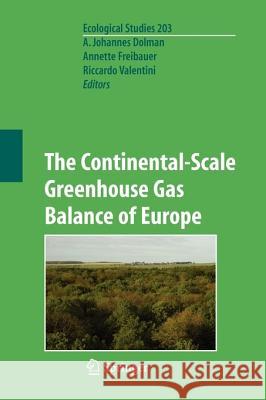The Continental-Scale Greenhouse Gas Balance of Europe » książka
The Continental-Scale Greenhouse Gas Balance of Europe
ISBN-13: 9781441926289 / Angielski / Miękka / 2010 / 390 str.
The human interference with the climate system, the perturbation of the carbon cycle through massive release of greenhouse gases, caused by fossil fuel burning and land-use change, is threatening society and represents a key challenge for research and policies in the twenty-first century. Growing evidence of hum- induced climate change has raised public concern calling for urgent international policy actions. Initiatives culminated in the establishment of the United Nations Framework Convention for Climate Change (UNFCCC) and the Kyoto Protocol (1997), where Parties for the first time agreed on legally binding commitments to reduce greenhouse gas emissions. It is worth noting that the unfinished 'sink' business, the Articles in the Kyoto Protocol dealing with terrestrial biospheric carbon dioxide sources and sinks, gave carbon cycle research a real boost. In the 1990s, the regional carbon balance and how the different ecosystems contribute at different timescales under different environmental conditions were hardly known. During the fourth Framework Programme (1994-1998), the European Union supported more than 20 research projects studying the components of the carbon cycle. These projects provided a solid basis for a more integrated attempt to tackle the research challenges and demands imposed by the Kyoto Protocol at European scale. Both the European Commission and the scientific community felt that it was time to develop an integrated carbon cycle research programme taking the new challenges on board.











